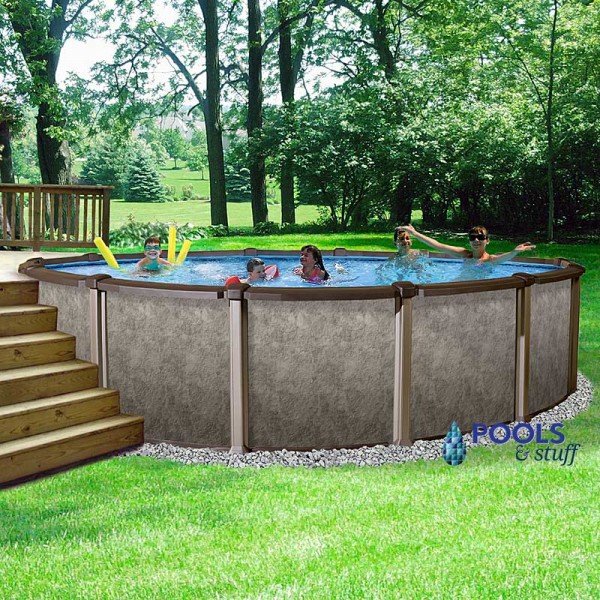Are you wondering about the types of above-ground pools that can be safely left up throughout the year? Well, look no further! In this article, we will explore the different options available to you and provide insight into the best choices for year-round pool enjoyment. So, if you’re ready to dive into the world of above-ground pools that withstand all seasons, keep reading for some helpful information and recommendations.
This image is property of images.unsplash.com.
Inflatable Above-Ground Pools
Advantages of Inflatable Above-Ground Pools
Inflatable above-ground pools offer several advantages that make them a popular choice for many homeowners. Firstly, they are extremely easy to set up and dismantle, allowing for a hassle-free installation process. Additionally, their portability is a significant advantage, as they can be easily moved or stored when not in use. Furthermore, inflatable pools are typically more affordable compared to other options, making them a budget-friendly choice for families. Lastly, these pools are generally safer for children due to their soft sides, reducing the risk of accidents or injuries.
Factors to Consider with Inflatable Above-Ground Pools
While inflatable pools have their advantages, it is crucial to consider a few factors before making a purchase. Firstly, the durability of the material used is essential, as a sturdy and puncture-resistant pool will last longer and require fewer repairs. Secondly, ensure that the pool size is suitable for your available space and desired capacity. Additionally, consider the ease of maintenance and cleaning, as some inflatable pools come with built-in filtration systems. Lastly, take into account the time required for inflation and deflation, as this may impact your overall pool experience.
Weather Considerations for Inflatable Above-Ground Pools
When it comes to weather considerations, inflatable above-ground pools require special attention. These pools are not recommended for areas with harsh weather conditions, such as strong winds or extreme temperatures. High winds can cause instability and damage to the pool, while extreme temperatures may affect the durability of the material. It is advisable to store inflatable pools indoors during the winter or during severe weather conditions to prolong their lifespan and prevent unnecessary damage.
Steel Frame Above-Ground Pools
Advantages of Steel Frame Above-Ground Pools
Steel frame above-ground pools offer numerous advantages that make them a popular choice among homeowners. Firstly, these pools are known for their sturdiness and durability, providing long-lasting enjoyment for you and your family. Secondly, the robust construction of steel frames ensures the pool’s stability, even when encountering external forces. Additionally, steel frame pools are highly resistant to punctures and damages, making them suitable for areas with rough terrain or active children. Lastly, these pools often come in various shapes and sizes, allowing for greater customization options.
Factors to Consider with Steel Frame Above-Ground Pools
Before deciding on a steel frame above-ground pool, it is important to consider several factors. Firstly, the quality and gauge of the steel used in the frame should be assessed, as this will determine the pool’s durability and resistance to corrosion. Secondly, the size and shape of the pool should be chosen carefully to suit your available space and intended use. Consider whether you want a round, rectangular, or oval pool and ensure it meets your specific requirements. Lastly, take into account the installation process, as steel frame pools generally require more effort and time for setup compared to other options.
Weather Considerations for Steel Frame Above-Ground Pools
Steel frame above-ground pools are built to withstand various weather conditions. However, there are still some weather considerations to keep in mind. Firstly, extreme heat can cause the water to evaporate quickly, resulting in frequent refilling and increased water costs. Secondly, freezing temperatures can lead to ice formation, potentially damaging the pool structure. To combat these issues, it is recommended to invest in pool covers and insulation to regulate the water temperature and protect the pool during colder months. Regular maintenance and inspections are also essential to detect any signs of corrosion or damage caused by weather elements.
Resin Above-Ground Pools
Advantages of Resin Above-Ground Pools
Resin above-ground pools offer several advantages that make them a popular option for many homeowners. Firstly, these pools are highly resistant to corrosion, ensuring they remain in excellent condition even when exposed to water and harsh chemicals. Secondly, resin pools have a sleek and aesthetically pleasing appearance, enhancing the overall look of your backyard. Additionally, they are known for their easy maintenance requirements, as resin does not require painting or sealing. Lastly, these pools are typically lighter than steel frame pools, making the installation process more manageable.
Factors to Consider with Resin Above-Ground Pools
Before purchasing a resin above-ground pool, there are a few factors to consider. Firstly, determine the quality of the resin used, as high-quality resin will have better resistance to UV rays and chemicals. Secondly, assess the pool’s dimensions and capacity to ensure it fits your space and desired usage. Additionally, consider the overall stability and reliability of the pool, particularly if you have children or pets. Lastly, research the manufacturer’s warranty and customer reviews to gauge the pool’s longevity and customer satisfaction.
Weather Considerations for Resin Above-Ground Pools
Resin above-ground pools are designed to withstand various weather conditions. However, certain weather considerations should still be taken into account. Firstly, extreme heat and intense sunlight exposure can cause the resin to fade or become brittle over time. To mitigate this, it is recommended to use pool covers or seek shade during peak sun hours. Secondly, freezing temperatures can cause the resin to crack or expand, leading to potential structural issues. To prevent such problems, ensure proper winterization techniques are followed, and the pool is adequately protected during colder months.
Hybrid Above-Ground Pools
Advantages of Hybrid Above-Ground Pools
Hybrid above-ground pools offer the best of both worlds, combining the advantages of different pool construction materials. Firstly, these pools typically have a steel frame, providing excellent stability and durability. Secondly, they feature resin or aluminum components, enhancing the pool’s aesthetics and resistance to corrosion. The combination of these materials results in a strong, reliable pool that requires minimal maintenance and offers a long lifespan. Hybrid pools also offer flexibility in terms of customization options, allowing for various shapes and sizes to suit your preferences.
Factors to Consider with Hybrid Above-Ground Pools
When considering a hybrid above-ground pool, there are a few factors to keep in mind. Firstly, ensure that both the steel frame and the additional materials used are of high quality to guarantee long-term durability. Secondly, assess the pool’s size and shape options to find the perfect fit for your available space. Additionally, consider the overall weight of the pool, as hybrid pools tend to be heavier than inflatable or resin pools. Lastly, research the manufacturer’s warranty and customer reviews to ensure a reliable and satisfactory purchase.
Weather Considerations for Hybrid Above-Ground Pools
Hybrid above-ground pools are designed to withstand various weather conditions, but it is important to consider specific weather factors. Firstly, extreme heat can cause the pool water to evaporate quickly, leading to increased maintenance and water costs. Secondly, freezing temperatures can affect the pool’s structure, particularly the steel frame and resin components. Proper winterization techniques, such as using pool covers and antifreeze agents, are crucial to protecting the pool during colder months. Regular inspections and maintenance throughout the year will also help detect any weather-related damages and address them promptly.
This image is property of images.unsplash.com.
Size and Shape Considerations
Small Above-Ground Pools
Small above-ground pools are ideal for homeowners with limited space or those looking for a more intimate pool experience. These pools typically have a diameter of 10-15 feet and can accommodate a small number of swimmers. They are perfect for cooling off on hot summer days or for families with young children who enjoy splashing around. Additionally, small pools are more budget-friendly, requiring less maintenance and fewer resources for heating and chemical treatments.
Medium Above-Ground Pools
Medium-sized above-ground pools strike a balance between space limitations and desired capacity. Ranging from 15-24 feet in diameter, these pools offer ample room for multiple swimmers, making them suitable for both families and entertaining guests. The larger size means more flexibility for activities such as swimming laps or playing games. Medium pools require regular maintenance and adequate filtration systems to ensure water quality remains pristine.
Large Above-Ground Pools
Large above-ground pools are the perfect choice for homeowners who have a spacious backyard and desire a substantial swimming area. With diameters exceeding 24 feet, these pools offer plenty of room for both leisurely bathing and aquatic exercises. They are an excellent option for families or individuals who enjoy hosting pool parties or social gatherings. However, large pools require diligent upkeep, including robust filtration systems and regular water testing and balancing.
Round Above-Ground Pools
Round above-ground pools are a popular choice due to their simplicity and ease of installation. With a circular shape, these pools provide equal space around the entire perimeter. They are available in various sizes, catering to different preferences and space limitations. Round pools often have a sturdy structural design, ensuring stability and resistance to external forces. They are user-friendly and suitable for both recreational purposes and swimming exercises.
Rectangular Above-Ground Pools
Rectangular above-ground pools offer a more traditional and elegant aesthetic to your backyard. Their shape allows for convenient lap swimming and recreational activities such as volleyball or basketball. Rectangular pools typically require a larger space to accommodate their longer sides, making them more suitable for expansive yards. Additionally, these pools often come with customizable options, such as built-in steps or diving boards, to enhance your swimming experience.
Oval Above-Ground Pools
Oval above-ground pools provide a unique blend of space efficiency and functionality. The elongated shape allows for a larger swimming area while minimizing the required space for installation. The rounded ends provide a visually appealing touch, making the pool a focal point in your backyard. Oval pools are ideal for families or individuals who desire a larger pool but have limited yard space. However, these pools may require specific structural considerations due to the curved sides and multi-support system.
Decking and Enclosure Options
Benefits of Decking and Enclosure for Above-Ground Pools
Decking and enclosure options offer several benefits to above-ground pool owners. Firstly, a well-designed pool deck enhances the overall appearance and functionality of the pool area. It provides a smooth and stable surface for walking, sunbathing, and outdoor furniture placement. Secondly, a deck acts as a safety barrier, making it more difficult for young children or pets to access the pool unsupervised. Enclosures, such as fences or privacy screens, offer additional security and privacy, creating a more intimate and protected pool experience.
Types of Decking for Above-Ground Pools
There are various types of decking materials available for above-ground pools, each offering different advantages. Wood decking is a popular choice due to its natural aesthetics and versatility. However, regular maintenance such as staining or sealing is necessary to ensure its durability. Composite decking is another option that requires less maintenance and provides enhanced durability and resistance to moisture and UV rays. Other materials, such as stone or concrete, offer durability but may require professional installation and can be more expensive.
Types of Enclosures for Above-Ground Pools
When it comes to enclosing your above-ground pool, there are several options to consider. Fences are a common choice as they provide a physical barrier to restrict access and increase safety. They are available in various materials, including aluminum, vinyl, and wood, allowing for customization based on your preferences. Privacy screens offer additional privacy and can be made from materials such as bamboo or fabric. Retractable enclosures provide the flexibility to open or close the pool area depending on the weather conditions or personal preference.
Maintenance Considerations for Decking and Enclosure
Proper maintenance is essential to ensure the longevity and aesthetics of your pool decking and enclosures. Regular cleaning, such as sweeping or power washing, is necessary to remove dirt, debris, and stains. For wooden decks, periodic staining or sealing is recommended to protect against moisture and sun damage. Inspecting the structural integrity of the deck and enclosures is crucial to identify any signs of wear or potential safety hazards. Regular maintenance also includes checking for loose or damaged parts and repairing or replacing them promptly.
This image is property of images.unsplash.com.
Winterization Techniques
Draining and Dismantling
Proper winterization of your above-ground pool is crucial to protect it from potential damage during the colder months. Draining the pool is the first step, ensuring that the water level is significantly reduced to prevent freezing and ice damage. Dismantling certain components, such as ladders or slides, is necessary to avoid unnecessary wear and tear. Ensure that all water is drained from these removable parts to prevent freezing and cracking.
Insulation and Pool Covers
Insulation plays a key role in protecting the pool from extreme temperatures during winter. Pool covers are essential to prevent debris from entering the pool and to retain heat, reducing the risk of freezing. Solar pool covers are an excellent option as they not only provide insulation but also absorb and retain solar heat, keeping the water temperature relatively warm. Additionally, solid pool covers provide an added layer of protection against harsh weather conditions and potential damage.
Chemical Treatments
Proper chemical treatments are crucial during the winterization process to maintain water quality and prevent the growth of algae and bacteria. Balancing the water’s pH level and adding appropriate winterizing chemicals, such as algaecides and sanitizers, is essential. These treatments help prevent the buildup of harmful microorganisms and ensure that the pool remains in good condition until the next swimming season.
Equipment Storage
Storing your pool equipment properly during the winter is essential for its longevity and functionality. Clean and dry all equipment, including filters, pumps, and hoses, before storing them in a secure and dry location. Remove any debris or dirt that might have accumulated on the equipment. It is advisable to store equipment indoors, away from freezing temperatures and potential damage caused by moisture or pests.
Local Regulations and Permits
Researching Local Regulations
Before installing an above-ground pool, it is essential to research and understand the local regulations and restrictions in your area. This includes zoning requirements, setback rules, and any necessary permits or approvals needed for pool installation. Some areas might have specific guidelines regarding fence height, location, or safety features. Familiarizing yourself with these regulations will help ensure compliance and avoid potential fines or penalties.
Obtaining Permits for Permanent Above-Ground Pools
Certain above-ground pools may require permits, especially if they are considered permanent structures. Permits are typically required to ensure proper installation, compliance with safety regulations, and adherence to building codes. The process of obtaining permits may vary depending on your local jurisdiction, and it is essential to follow all necessary steps and provide the required documentation. Contacting your local building or planning department is the best way to determine the specific permit requirements for your area.
Compliance and Safety Measures
Compliance with local regulations and safety measures is of utmost importance when installing and maintaining an above-ground pool. Ensure that all safety guidelines, such as fence installation, gate locks, or pool alarms, are followed to prevent unauthorized access, particularly for households with young children. Regular inspections and maintenance should be conducted to identify any potential safety hazards or non-compliance issues, allowing for prompt corrective measures to be taken.
Maintenance Tips for Year-Round Pools
Regular Cleaning and Filtration Maintenance
Regular cleaning and filtration maintenance are essential for year-round pools to ensure water cleanliness and clarity. This includes skimming the surface to remove debris, vacuuming the pool floor, and brushing the walls to prevent the buildup of algae or bacteria. The filtration system should be inspected regularly, with filters cleaned or replaced as needed. Additionally, backwashing the filter or conducting regular filter maintenance is crucial to maintain its efficiency.
Water Chemistry Testing and Balancing
Water chemistry testing and balancing should be performed regularly to maintain optimal water quality and prevent any potential health risks. Testing the water’s pH level, alkalinity, and chlorine or sanitizer levels is necessary to ensure proper disinfection and prevent the growth of algae or bacteria. Balancing these chemical levels helps maintain clear and safe pool water for swimming.
Addressing Potential Damages
Regular inspections should be conducted to detect any potential damages to the pool structure, equipment, or surrounding areas. Promptly addressing any cracks, leaks, or damages is essential to prevent further deterioration and potential safety risks. If any damages are identified, it is advisable to consult a professional or contact the pool manufacturer for appropriate repair or replacement options.
Inspecting and Repairing Pool Liners
Pool liners should be inspected regularly for signs of wear, tear, or damage. Common issues include tears, fading colors, or wrinkles, which not only affect the pool’s aesthetics but may also compromise its integrity. Damaged pool liners should be repaired or replaced to prevent leaks and maintain the pool’s functionality. It is recommended to follow the manufacturer’s guidelines or consult a professional for proper liner repair or replacement techniques.
Maintaining Proper Water Levels
Maintaining proper water levels is crucial for the overall health and functionality of your year-round pool. Water levels should be regularly monitored and adjusted as needed to ensure efficient filtration and skimming. Factors such as evaporation, pool usage, and weather conditions can affect water levels, and they should be checked and maintained accordingly. Adequate water levels help prevent damage to the pool equipment and maintain proper circulation for optimal water quality.
Cost Considerations
Initial Investment
The initial cost of an above-ground pool varies depending on factors such as size, materials used, and additional features. Inflatable pools generally have a lower initial cost, making them a more budget-friendly option. Steel frame and hybrid pools tend to have a higher initial investment due to their sturdier construction and additional features. Resin pools fall within a mid-range price point, offering a good balance between affordability and long-term durability. Moreover, the cost of installation, site preparation, and any necessary permits should also be considered when calculating the total initial investment.
Operating Costs
Operating costs include expenses such as water, electricity for pool pumps or heaters, chemicals, and regular maintenance. The water bill can increase depending on the pool’s size and frequency of water changes due to evaporation, backwashing, or draining for maintenance purposes. Electricity usage varies depending on factors such as pool size, equipment efficiency, and frequency of use. Chemical costs include sanitizers, pH balancers, and algaecides. Regular maintenance, including filtration system upkeep, cleaning supplies, and equipment repairs, also contribute to overall operating costs. Proper maintenance and energy-efficient equipment can help reduce these costs over time.
Long-Term Maintenance and Repairs
Long-term maintenance and repair costs should be considered when investing in an above-ground pool. While inflatable pools generally require less maintenance, they may require more frequent repairs or replacements due to their softer material. Steel frame and resin pools are known for their durability, requiring fewer repairs over their lifespan. Hybrid pools may require occasional maintenance on both steel and additional materials. Factors such as climate, usage, and maintenance practices can affect the overall maintenance and repair costs. Regular inspections and timely repairs can help prevent costly damages and extend the pool’s lifespan.
Return on Investment
The return on investment for an above-ground pool depends on various factors, including the initial investment, operating costs, and the overall enjoyment and value it adds to your property. While above-ground pools may not increase the property value significantly, they can enhance the usability and aesthetic appeal of your backyard, providing an enjoyable space for relaxation and recreation. Additionally, the return on investment includes intangible benefits such as improved family bonding, increased physical activity, and overall well-being. It is important to weigh both the financial considerations and the personal enjoyment when assessing the return on investment for an above-ground pool.








